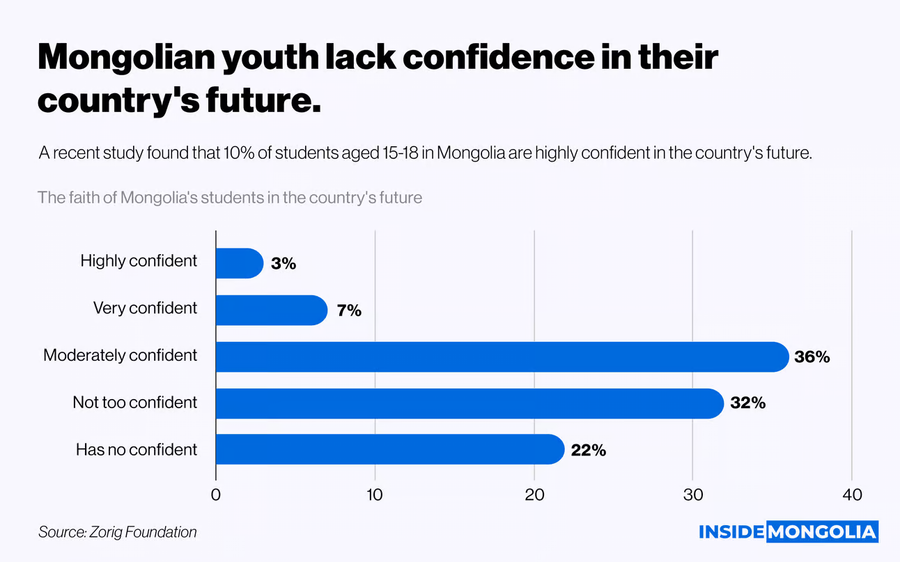Youth: Lack of confidence
Khulan M.
June 11, 2023
June 11, 2023

How much do Mongolia’s high school students, who make up 5.5% of the population, care about politics? A survey by Zorig Foundation, a youth-focused NGO, reveals their political understanding and attitudes.
The survey, conducted as part of the foundation’s Young Leadership Programme, involved 1,146 students aged between 15 and 18.
Are teens interested in politics?
Only 19.4% of respondents said they were very interested in politics in general. The survey showed that students’ interest in politics tended to increase with age.
- Influencers: Parents had the biggest role in shaping students’ political opinions. 71% of students had some kind of political conversation with their parents, while only 55% had ever had a political conversation with their teacher. This suggests that parents are more likely to talk to their children about politics than teachers.
- Will they participate in the elections? 74% of respondents said they would participate in the election and vote if they were of voting age, while 10% said no and 15% did not know. However, 18.9% of respondents saw the election as a competition for wealthy people. This indicates that a notable number of young people believe that the political system is rigged in favour of the wealthy and that their votes do not matter.
No confidence
Furthermore, the current political landscape has led students to lose hope for the country’s future. 54% of respondents said they had little or no confidence in Mongolia’s future, 36% had moderate confidence, and only 10% had complete confidence. They identified corruption and the quality of the education system as primary issues.
Despite the weak interest in politics and uncertainty about the future, 97.3% of students expressed an interest in learning more about politics. Additionally, 91% said they would do volunteer work to bring positive change to society if they got a chance.
Comment